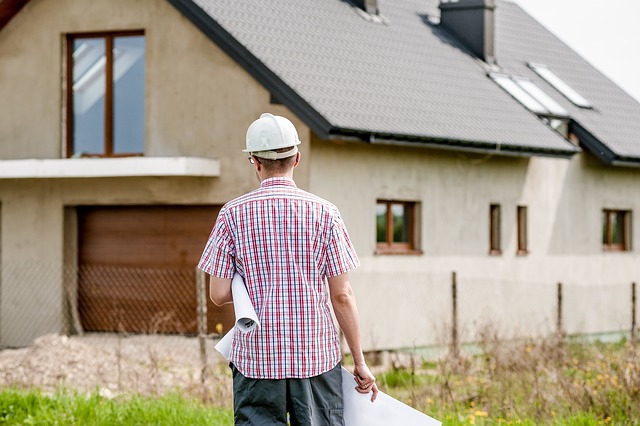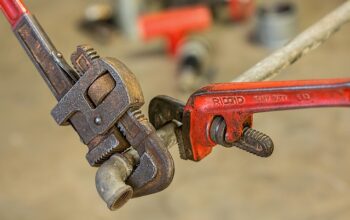Home repair and maintenance success hinges on strategic planning, which includes thorough assessment of your space, setting clear objectives, budgeting accurately, and creating a timeline that reflects these goals. A robust plan anticipates challenges and leverages opportunities for a smooth renovation process. In-depth research into materials, contractors, and design choices is crucial for informed decision-making and cost management. Effective project management is vital, involving detailed planning from demolition to completion, with flexibility to adapt to unexpected events. Clear communication among all stakeholders ensures alignment with the project's goals and progress. A proactive approach enhances navigation through home renovation complexities, leading to a successful transformation of your living environment. Financial planning, including a reserve fund for unexpected expenses, is essential to manage costs and logistics associated with maintaining a safe, efficient, and comfortable home. Long-term planning for future maintenance needs helps avoid costly emergency repairs and promotes a sustainable approach to home integrity. Regular inspections against local building codes and regulations, along with leveraging home repair and maintenance expertise from the start, ensures a renovation that meets industry standards, is code compliant, and stands the test of time.
- Strategic Planning for Efficient Home Renovation: Setting the Foundation for Success
- Mastering Home Repair and Maintenance: Prioritizing Tasks and Budgeting Effectively
- Executing Your Renovation Plan: Tips for Project Management and Quality Control
Strategic Planning for Efficient Home Renovation: Setting the Foundation for Success

Effective home renovation hinges on strategic planning, which lays the groundwork for a successful project. Homeowners embarking on such endeavors must begin with a comprehensive assessment of their space, considering both the current state of the home and the desired outcome post-renovation. This initial phase includes setting clear objectives, budget allocation, and timeline establishment, ensuring that all aspects align with the intended goals for home repair and maintenance. A well-thought-out plan addresses potential challenges and opportunities, fostering a smooth renovation process. It’s crucial to conduct thorough research on materials, contractors, and design options, as this will inform decision-making and cost management throughout the project. By establishing a robust framework for home repair and maintenance within the planning stage, homeowners can anticipate and mitigate risks, leading to a more efficient and satisfactory renovation experience.
Advance preparation in home renovation is not merely about selecting aesthetically pleasing designs or sourcing high-quality materials; it’s equally important to manage time and resources effectively. A detailed project plan, which includes a step-by-step timeline, outlines the sequence of work, from demolition to completion. This plan also incorporates a flexible schedule that accounts for unforeseen circumstances, ensuring that home repair and maintenance activities proceed without significant delays. Effective communication with contractors and other stakeholders is paramount throughout this process, as it ensures that everyone involved is aware of the project’s objectives, constraints, and progress. By adopting a proactive approach to planning and management, homeowners can navigate the complexities of renovation, leading to a more cohesive and successful transformation of their living space.
Mastering Home Repair and Maintenance: Prioritizing Tasks and Budgeting Effectively

Engaging in home repair and maintenance is a continuous process that demands strategic planning and budgeting to ensure that your living space remains safe, efficient, and comfortable. Homeowners must prioritize tasks based on urgency, necessity, and potential impact on their home’s value. Critical issues such as electrical hazards, plumbing leaks, and structural weaknesses often take precedence. However, routine maintenance activities should not be neglected; these include tasks like HVAC system checks, sealant reapplication around doors and windows, and regular cleaning of gutters to prevent water damage. Developing a comprehensive home repair plan involves inventorying the condition of all home systems and components, setting clear goals for upkeep, and creating a timeline for execution. This approach not only preserves the longevity of your home but also can prevent costly emergency repairs down the line.
Effective budgeting is an integral component of successful home repair and maintenance management. To avoid financial strain, it’s wise to establish a reserve fund allocated specifically for home repairs. This fund can help cover unforeseen expenses without disrupting your household budget. Additionally, spreading out larger projects over time can make them more manageable both financially and logistically. Homeowners should also consider the lifespan of their home’s components when planning future repairs. For instance, a roof may need attention every 20 years, while paint might require refreshing every five to ten years. By considering the long-term costs associated with owning a home and saving accordingly, you can ensure that your repair and maintenance efforts are not only timely but also economically sound. This proactive strategy minimizes the risk of major damage and promotes a sustainable approach to maintaining your home’s integrity.
Executing Your Renovation Plan: Tips for Project Management and Quality Control

When executing your home renovation plan, meticulous project management is paramount to ensure that the project stays on track and within budget. Begin by outlining a detailed timeline that accounts for each stage of the renovation, from demolition to the final touches. This timeline should be a living document, adaptable as the project progresses. Regularly update it to reflect any changes or delays, keeping all stakeholders informed. Effective communication with contractors and tradespeople is essential; establish clear lines of contact and maintain open dialogue to address issues promptly.
Quality control is an ongoing process throughout the renovation. Implement a checklist for each phase of work to ensure that standards are consistently met. This includes verifying measurements, materials, and craftsmanship. For instance, when it comes to home repair and maintenance, attention to detail in the initial stages can prevent costly repairs down the line. Engage with professionals who specialize in specific tasks, such as electricians or plumbers, to guarantee that each component of your renovation meets industry standards. Additionally, consider scheduling inspections at various points during the project to ensure compliance with local building codes and regulations. By combining robust project management with diligent quality control, you can oversee a renovation that not only enhances your home’s functionality and aesthetics but also endures for years to come.
Effective home renovation hinges on meticulous planning and strategic execution, a process that encompasses both strategic planning and masterful home repair and maintenance. This article has outlined the importance of setting a solid foundation for success through comprehensive planning, prioritizing tasks, and budgeting effectively to navigate the complexities of a renovation project. By following the tips provided for project management and quality control, homeowners can ensure their renovations are completed efficiently and to a high standard. With these insights, embarking on home repair and maintenance endeavors will be a more streamlined and rewarding experience. Homeowners should remember to approach each phase of the renovation process with attention to detail and a commitment to quality, which will lead to satisfactory results that stand the test of time.




